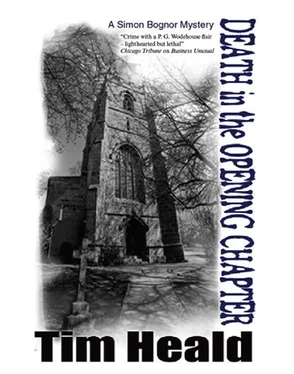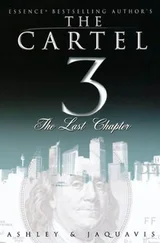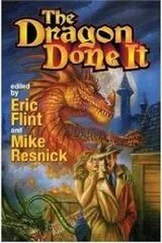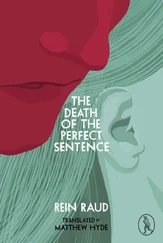Tim Heald - Death in the opening chapter
Здесь есть возможность читать онлайн «Tim Heald - Death in the opening chapter» весь текст электронной книги совершенно бесплатно (целиком полную версию без сокращений). В некоторых случаях можно слушать аудио, скачать через торрент в формате fb2 и присутствует краткое содержание. Жанр: Криминальный детектив, на английском языке. Описание произведения, (предисловие) а так же отзывы посетителей доступны на портале библиотеки ЛибКат.
- Название:Death in the opening chapter
- Автор:
- Жанр:
- Год:неизвестен
- ISBN:нет данных
- Рейтинг книги:5 / 5. Голосов: 1
-
Избранное:Добавить в избранное
- Отзывы:
-
Ваша оценка:
- 100
- 1
- 2
- 3
- 4
- 5
Death in the opening chapter: краткое содержание, описание и аннотация
Предлагаем к чтению аннотацию, описание, краткое содержание или предисловие (зависит от того, что написал сам автор книги «Death in the opening chapter»). Если вы не нашли необходимую информацию о книге — напишите в комментариях, мы постараемся отыскать её.
Death in the opening chapter — читать онлайн бесплатно полную книгу (весь текст) целиком
Ниже представлен текст книги, разбитый по страницам. Система сохранения места последней прочитанной страницы, позволяет с удобством читать онлайн бесплатно книгу «Death in the opening chapter», без необходимости каждый раз заново искать на чём Вы остановились. Поставьте закладку, и сможете в любой момент перейти на страницу, на которой закончили чтение.
Интервал:
Закладка:
‘That presupposes that either he committed suicide or that I killed him. It doesn’t allow for murder by a third party. If that happened, then the murderer would have been the last person to see him alive and the first person to see him dead.’
‘Which was it?’
He felt exasperated. At one moment she seemed almost precociously bright, the next unconscionably dim. There didn’t seem to be any half measures.
‘The last person to see him alive? Or the first person to see him dead?’
She allowed herself a fleeting smile. ‘If I killed dear Sebastian, then the two aren’t exclusive. In fact, they’re the reverse. If I killed him, then I would be the last person to see him alive and the first to see him dead. If I wasn’t the murderer, I wouldn’t have seen him alive. Only the body.’
‘So which was it? First? Or both? Did you kill him? Did he kill himself? Or was it a third party?’
‘You’re the professional,’ she said sweetly. ‘It’s for you to decide.’
TWENTY
He was getting somewhere, even though he didn’t know where. Even the arrival was far from assured. He felt as if this meandering interrogation was going to end in a conclusion, but he still didn’t know what it was, nor even if it would be useful or germane.
He shifted tack.
‘Do you think your husband’s death had anything to do with the literary festival? Or was it just a coincidence?’
Again she smiled.
‘The timing is interesting,’ she said. ‘If he had died at any other time, it would have been unlikely to attract attention. As it… well… who can say? Part of your role is to avoid publicity, keep things tidy and orderly, to avoid fuss. On the other hand, I sense that you want to establish the truth. The two may coincide. Or not. Who knows?’
‘I don’t think that answers my question,’ he said. ‘One of my problems is to establish whether this tragedy could have occurred at any time, or whether it took place specifically because it was the eve of the festival. What do you think?’
‘I don’t know,’ she said.
‘But what do you Thinking and knowing aren’t the same. One is an opinion and the other is a statement of fact. If you can produce the latter, then that’s great, but I suspect you can’t. In which case, I’ll have to make do with something more speculative. Obviously, that’s not as helpful, but it’s better than nothing.’ think?
‘I’m sorry,’ she said, ‘I really am, but I don’t have an opinion.’
He shifted tack again.
‘When I talked to the bishop,’ he said, ‘I got the impression that Sebastian was going through some kind of crisis. He was suddenly doubting his belief. Personally, I don’t see that there is any relation between this crisis of confidence and the festival. I could be wrong, of course, but I don’t see any connection. What do you think, though? Was the bishop right? Was the crisis real? Was it significant? Did it have anything to do with the festival. With books? With literature? With being a Fludd?’
Dorcas seemed anguished and confused.
‘Ebenezer shouldn’t have told you. He only knew about it because he was in a privileged position. It was as if it had been in the confessional. Not that I’m a papist, or anything so vulgar.’
The word ‘papist’ sounded ludicrously pejorative and old-fashioned to his ecumenical ears. She made ‘vulgar’ sound vulgar too. He was moderately surprised to hear the bishop referred to with quite such easy familiarity. Three words in about the same number of sentences. He wondered if he was becoming lexicographically threatened.
‘Do you think your husband killed himself?’ he asked. ‘It’s a simple question, and you’re in the best position to answer. I have to tell you that there is a lot of pressure to decide that he did. It’s neater. May not be true, but it’s tidy, and why not? If he was murdered by someone else, it’s not going to help him. Nothing we do will bring him back.’
‘No,’ she said, ‘I suppose not. He would have preferred it that way.’
‘Sorry?’ said Bognor, not understanding. ‘What would he have preferred and why?’
‘He never liked fuss. If he had to be dead, he’d rather just be buried and forgotten. That was his style, and nothing in that respect had changed.’
‘What other things had changed?’ This time Bognor knew – or thought he knew – what the answer should be. On the other hand, he didn’t know whether the widow would want to give it.
There was a long pause, which seemed to confirm his suspicions. Dorcas knew. He knew too, because he had been told by his friend the Rt Rev. Ebenezer. On the other hand, the answer was likely to prove embarrassing and did not necessarily show her in the best light. It might help Bognor, but it could hardly help the Reverend Sebastian. He was beyond help.
‘What other things had changed?’ he repeated.
‘I heard you the first time,’ she said. He wondered if she had been similarly crisp with her husband, the vicar. She seemed so mild; a wet blanket of a woman; one of nature’s hearth rugs. Women, he thought to himself, were surprisingly deceptive. On the whole, he didn’t accept generalizations about the difference between the sexes, not least because Monica, aka Lady Bognor, was not a woman in the accepted sense. Maybe Dorcas Fludd came into a similar category. He doubted it, but all things were possible, especially, he thought ruefully, where women, and more particularly wives, were concerned.
‘I’m thinking about your question,’ she said, by way of explanation. This did little or nothing to soften the blow. It was probably true and certainly was, in the sense that she had heard the question first time round. His concern was whether she was concocting a plausible lie, or thinking of how best to tell the truth. He was beginning not to trust her.
‘Sebastian was having doubts,’ she said, confirming what he had already been told by the bishop.
‘He doesn’t sound the most certain person in the world,’ he said. ‘I’ve always found the ability to see several sides of any question appealing.’
She took time to respond to these assertions.
‘I know what you mean,’ she said eventually, ‘and a certain doubtfulness may be attractive in a human being, in a general sense. It’s not helpful in a priest. Particularly when it concerns one’s vocation.’
‘And did it?’
More time for thought. He found this profoundly irritating, but knew that interrupting the silence was playing into her hands. Much better to remain quiet and let her answer his question. She made him wait, but replied in the end. He had no idea whether it was worth the wait, but it was better than nothing and better than interrupting. Of that much he was reasonably sure.
‘You could say so,’ she said at last. ‘Sebastian was having serious misgivings about God.’ She smiled wistfully. ‘Not clever for a vicar. Sebastian had always shown a remarkably definite belief in the Father Almighty. You could say that this was a necessity. In any event, he used to be rocksteady about that. It was odd, because in almost every other respect, he was a dreadful ditherer. I was the one who took the important decisions. I always acted sensibly and quickly, and I hardly ever changed my mind. Sebastian simply couldn’t make his up, except where God was concerned. He always used to be absolutely steady about that, until he changed and religion became as much of a muddle for him as everything else.’
‘What exactly do you mean by “everything else”?’ he asked, and this time there was no hesitation about the answer.
‘Oh, income tax, VAT, church flowers, holy dusters.’ She laughed. ‘The literary festival. Everything. Life, nuts and bolts.’
Читать дальшеИнтервал:
Закладка:
Похожие книги на «Death in the opening chapter»
Представляем Вашему вниманию похожие книги на «Death in the opening chapter» списком для выбора. Мы отобрали схожую по названию и смыслу литературу в надежде предоставить читателям больше вариантов отыскать новые, интересные, ещё непрочитанные произведения.
Обсуждение, отзывы о книге «Death in the opening chapter» и просто собственные мнения читателей. Оставьте ваши комментарии, напишите, что Вы думаете о произведении, его смысле или главных героях. Укажите что конкретно понравилось, а что нет, и почему Вы так считаете.












